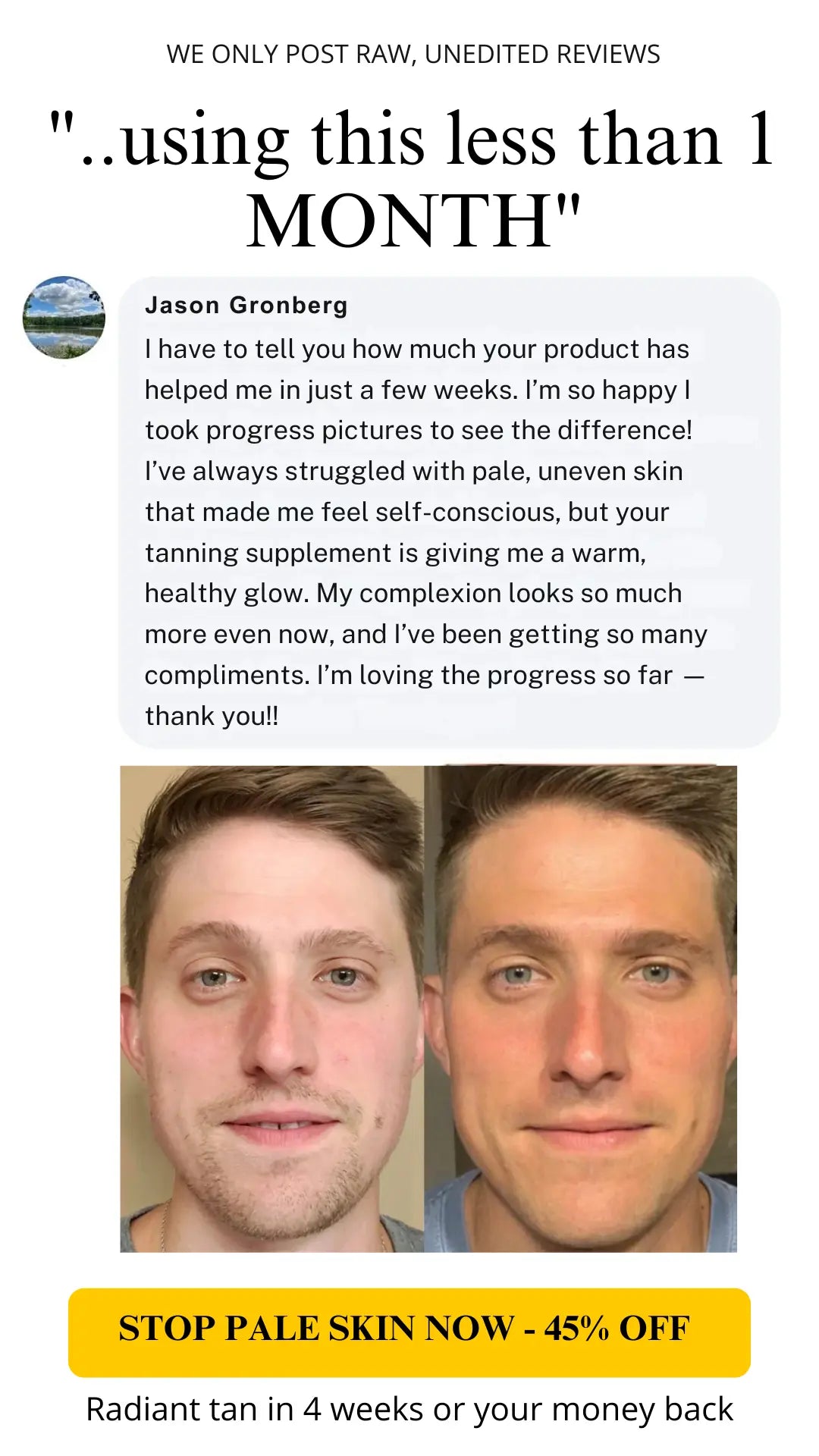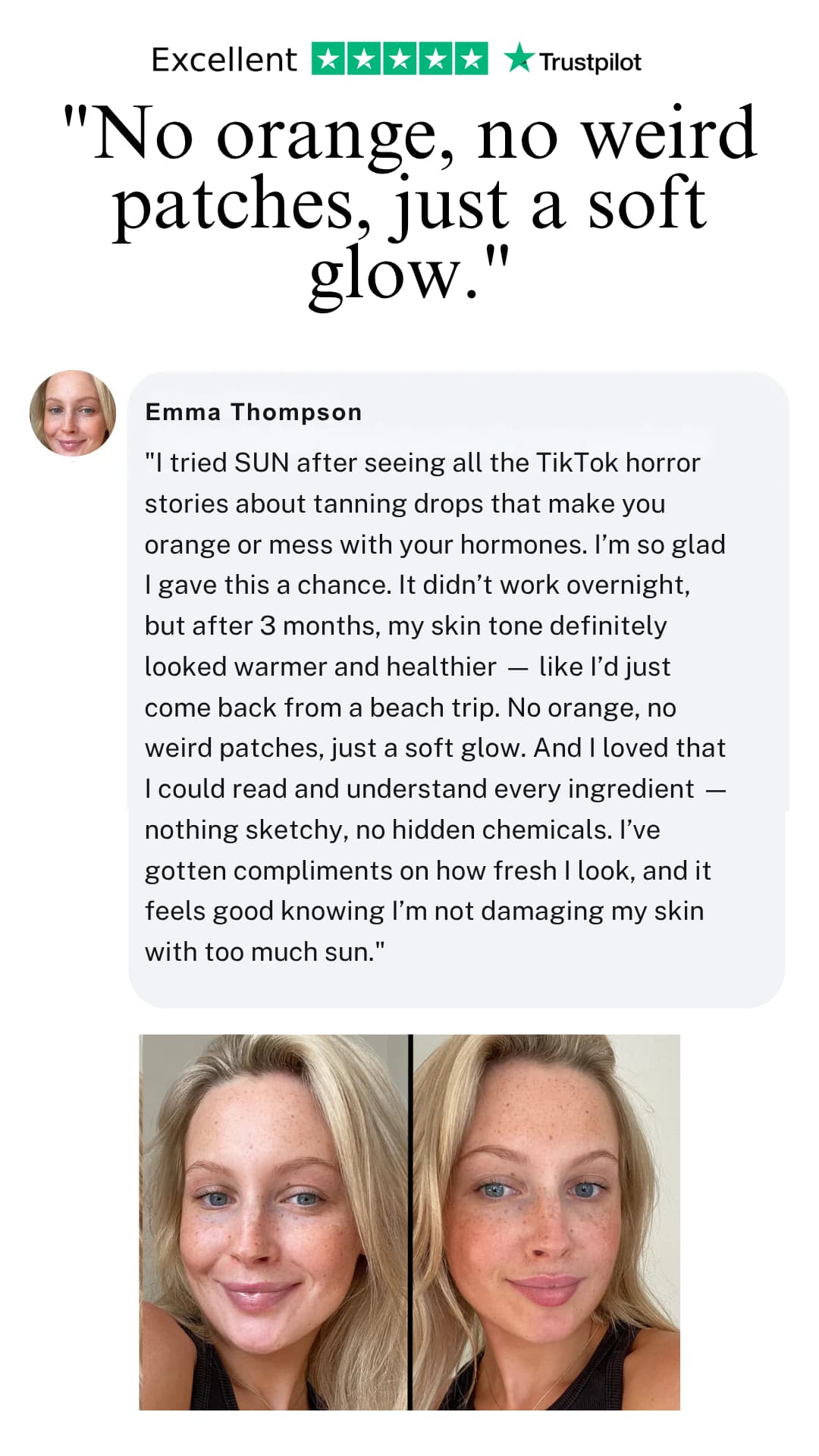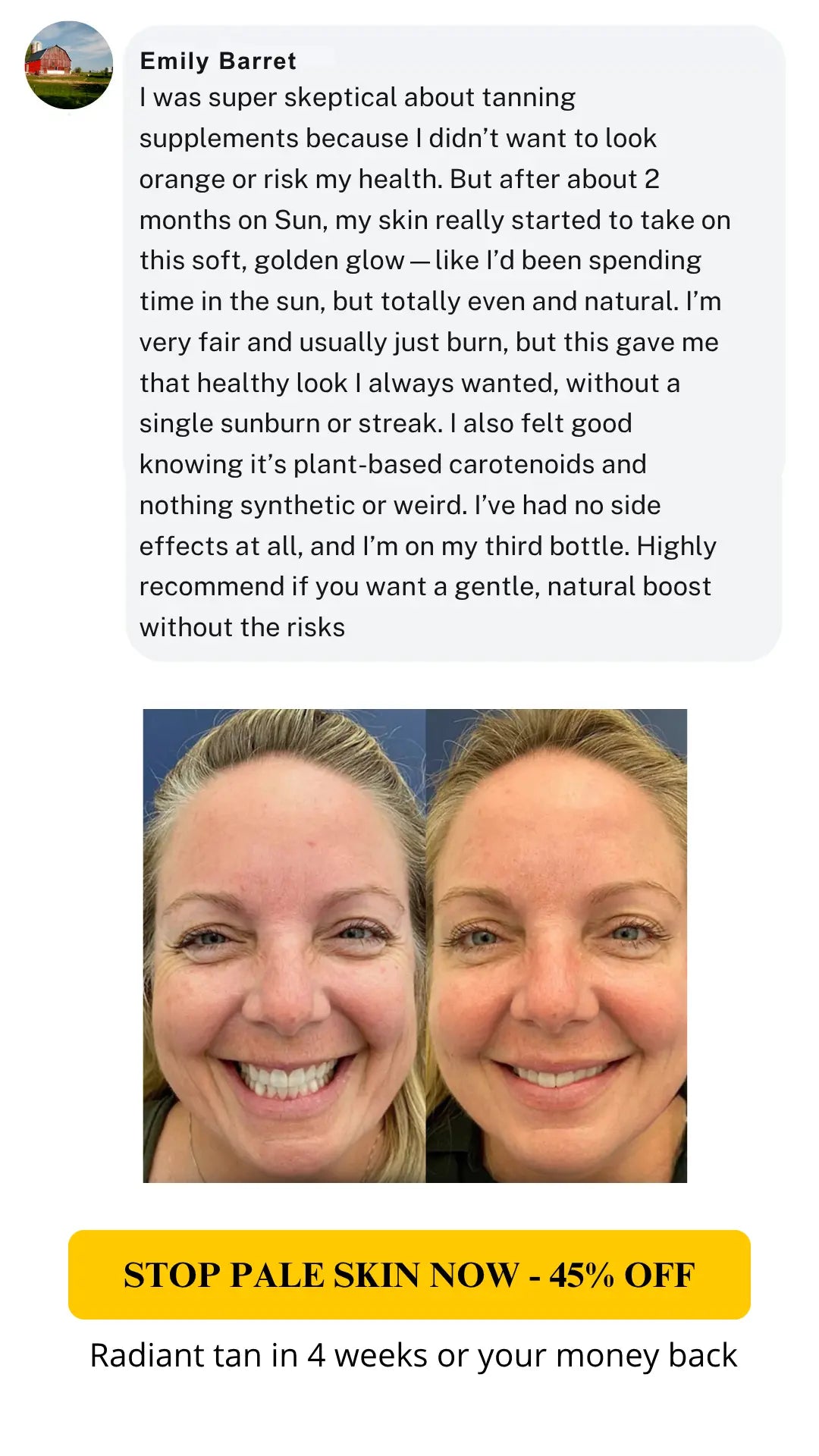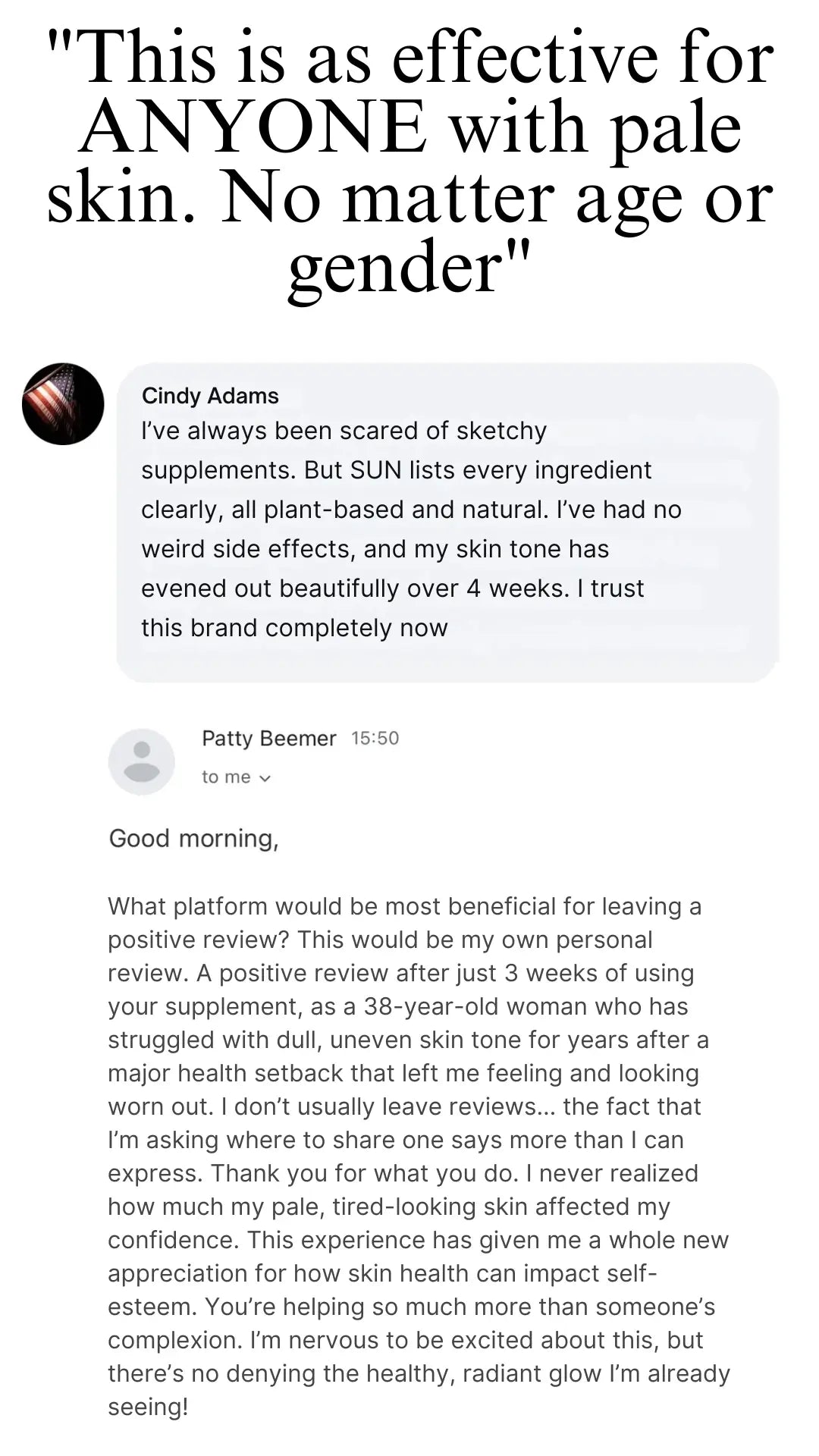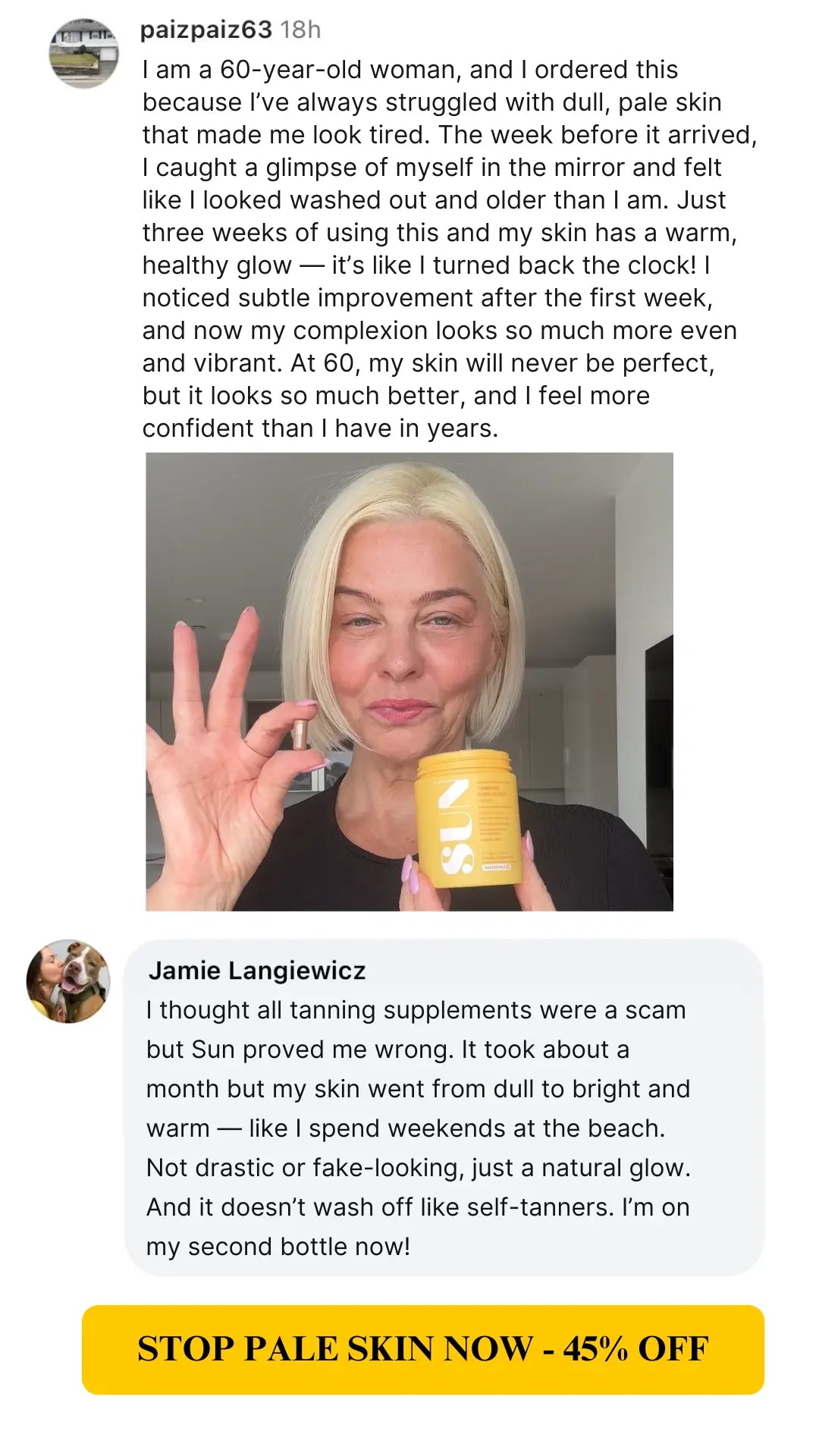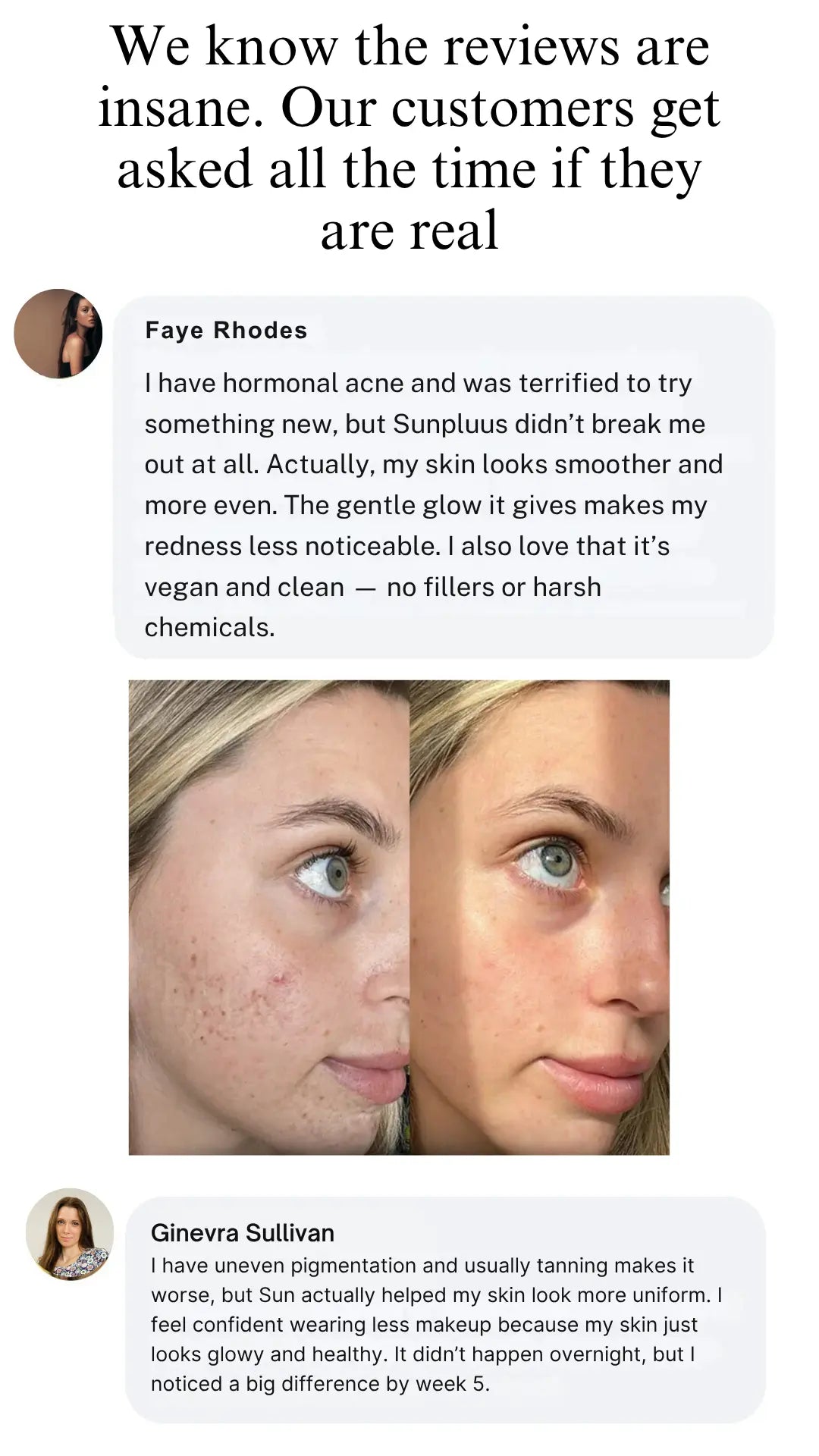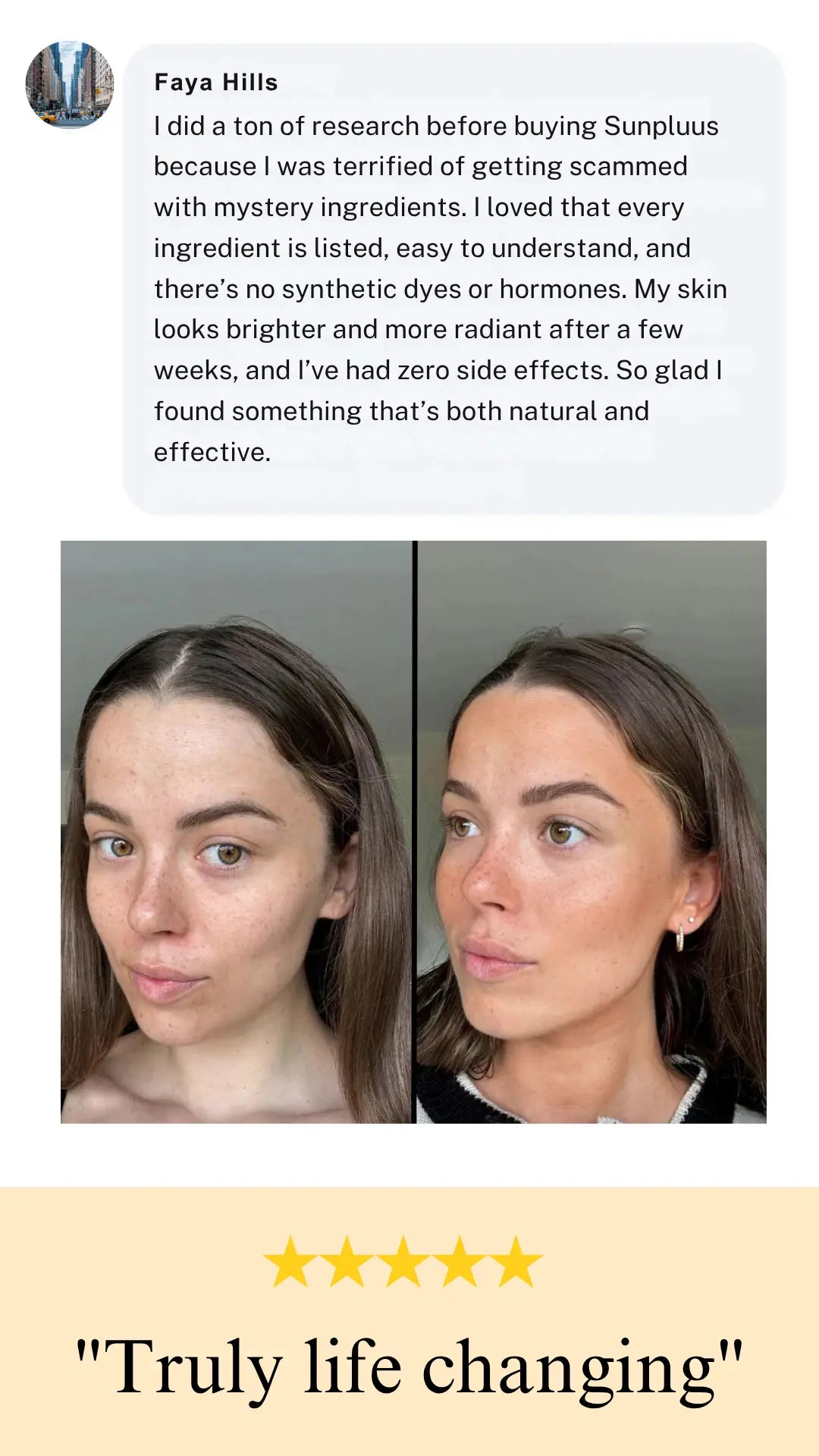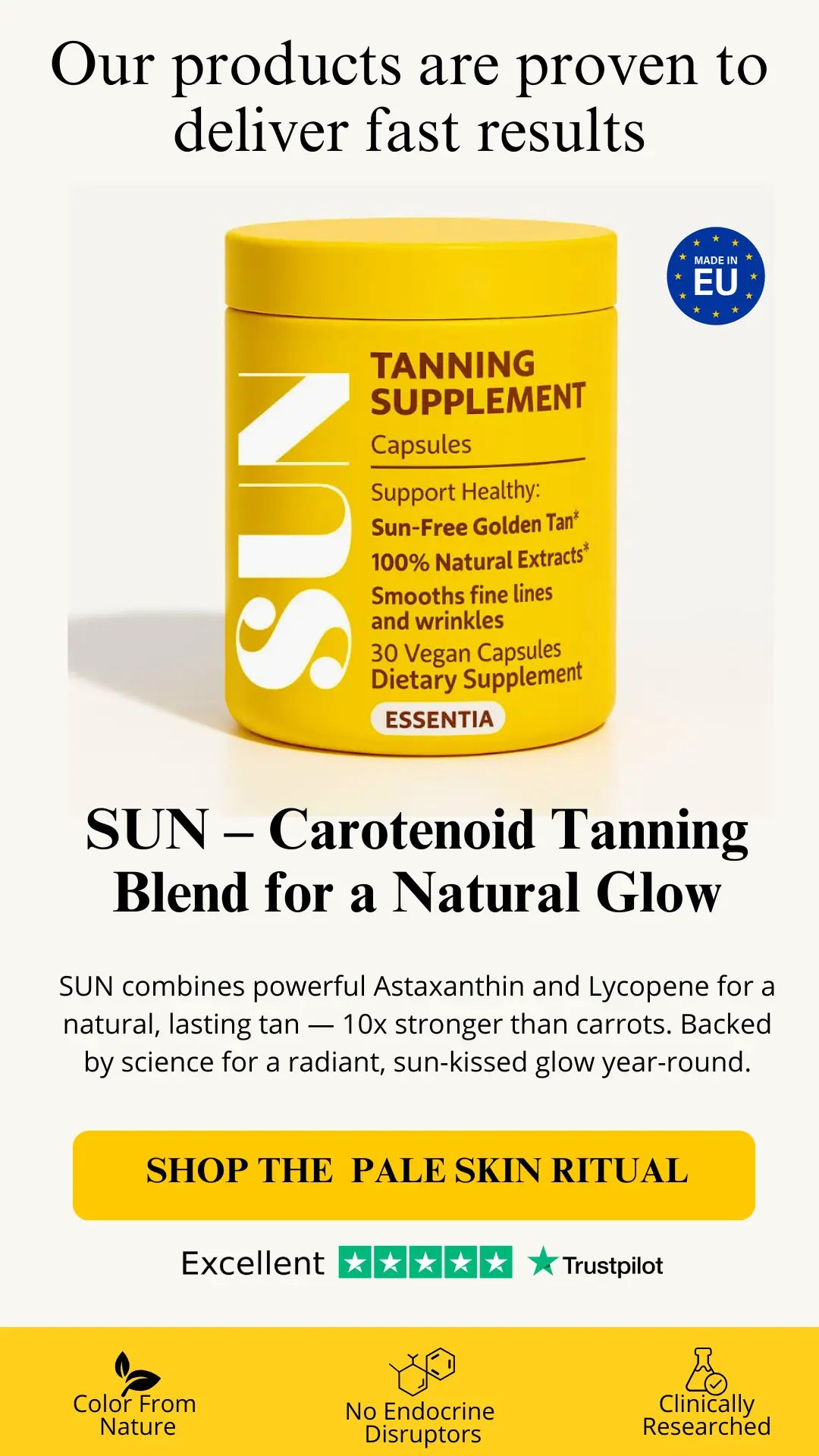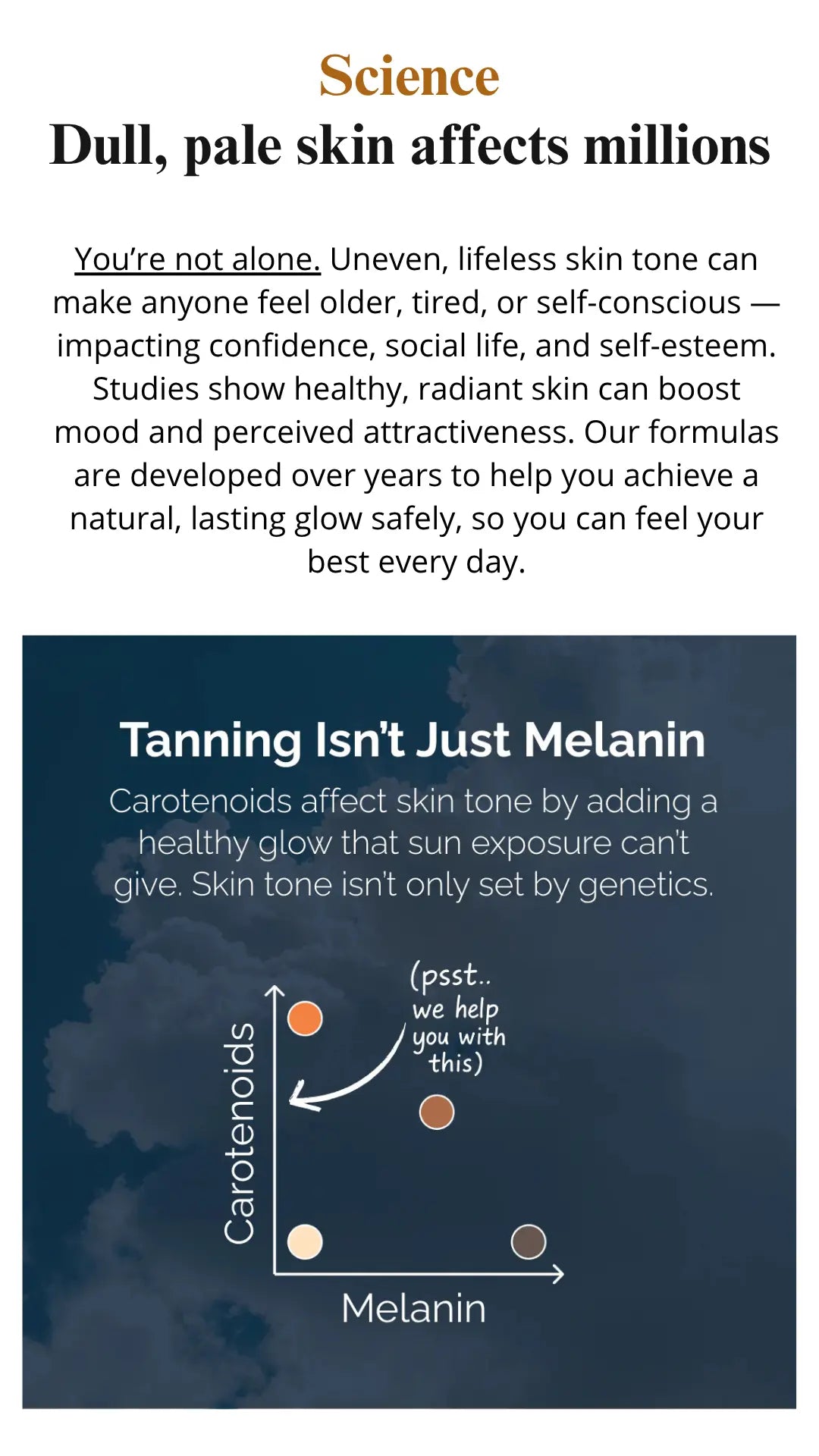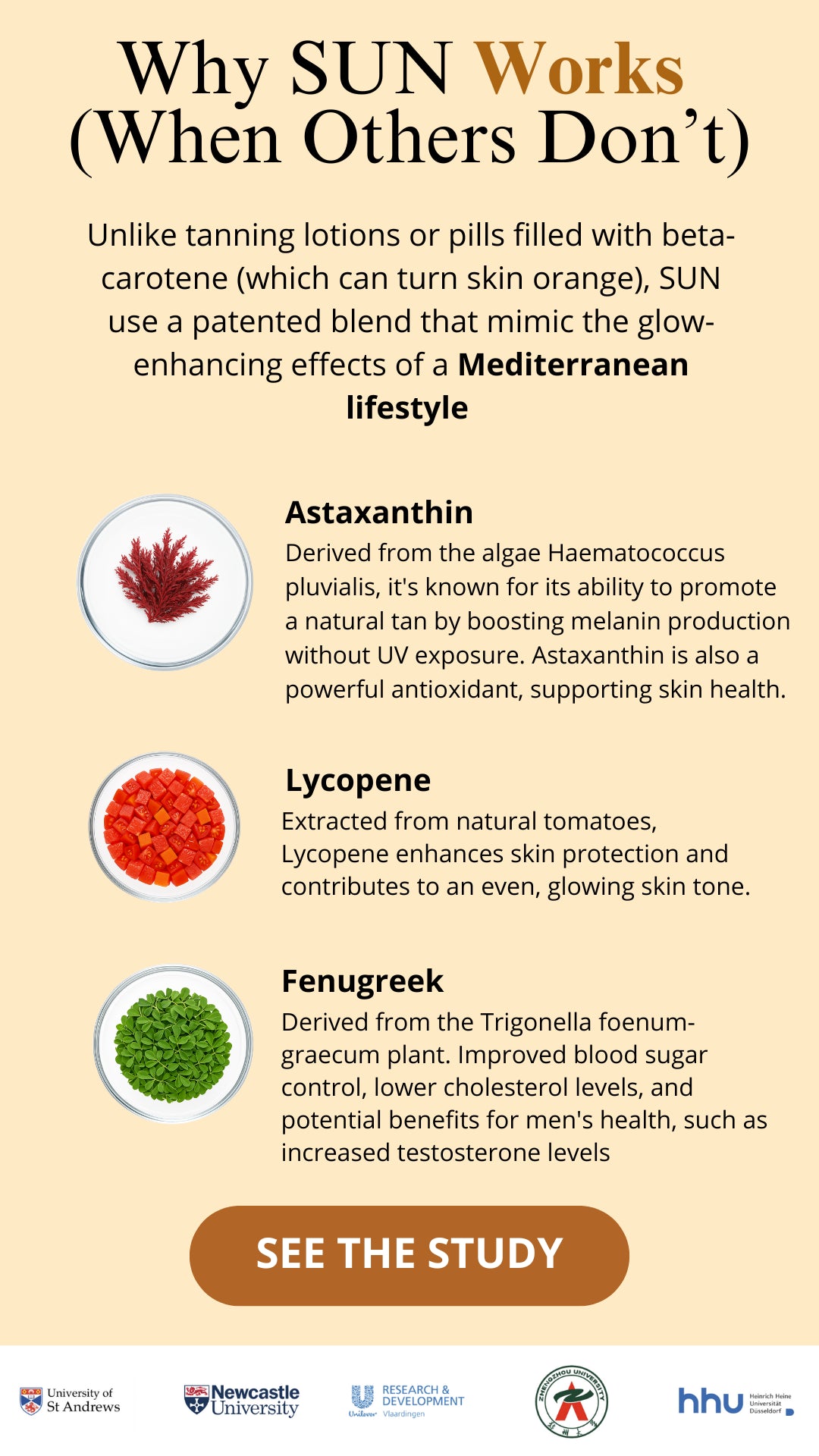Health Claims & Compliance
Everything we say is honest, transparent, and supported by research. We provide science-backed ingredients that are well-studied for enhancing skin tone. Below, we provide links to studies showing the potential benefits of our key ingredients, so that you can see them for yourself!
The supplement industry is extremely competitive, and as a young brand, some of our larger competitors may make bold statements that don’t always align with same strict EU guidelines. At SUN, we choose to stay fully compliant and science-backed.
At SUN, we prioritize transparency and regulatory compliance to make sure our products meet the highest required standards in the EU. The supplement industry is heavily regulated, and while we firmly believe in the benefits of our ingredients, strict EU guidelines limit the “health claims” we can make about their effects.

What We Can Say
The Foundational Research: Cambridge University 2012
The study that changed everything: Researchers at Cambridge University
demonstrated that increasing dietary carotenoid intake creates visible
skin color changes rated as more attractive than UV-induced tans.
Study: "You are what you eat: within-subject increases in fruit and
vegetable consumption confer beneficial skin-color changes"
Whitehead et al., PLoS ONE, 2012
Key Findings:
- Carotenoid-based skin color develops within 6 weeks
- Changes visible even without sun exposure
- Rated more attractive than melanin-based tans
- Effect strongest in fair to medium skin tones
https://journals.plos.org/plosone/article?id=10.1371/journal.pone.0032988
1. SUN contains a custom formula of natural carotenoids: astaxanthin, lycopene, L-Tyrosine and Copper
2. These compounds have been studied for their role in skin pigmentation and their ability to work alongside UV exposure for a deeper, longer-lasting tan.
3. Carotenoid-based skin tone enhancement is backed by scientific research, and supplementation provides a consistent, effortless way to integrate these nutrients into a daily routine.
Study: “Fruit over sunbed: carotenoid skin colouration is found more attractive than melanin colouration”
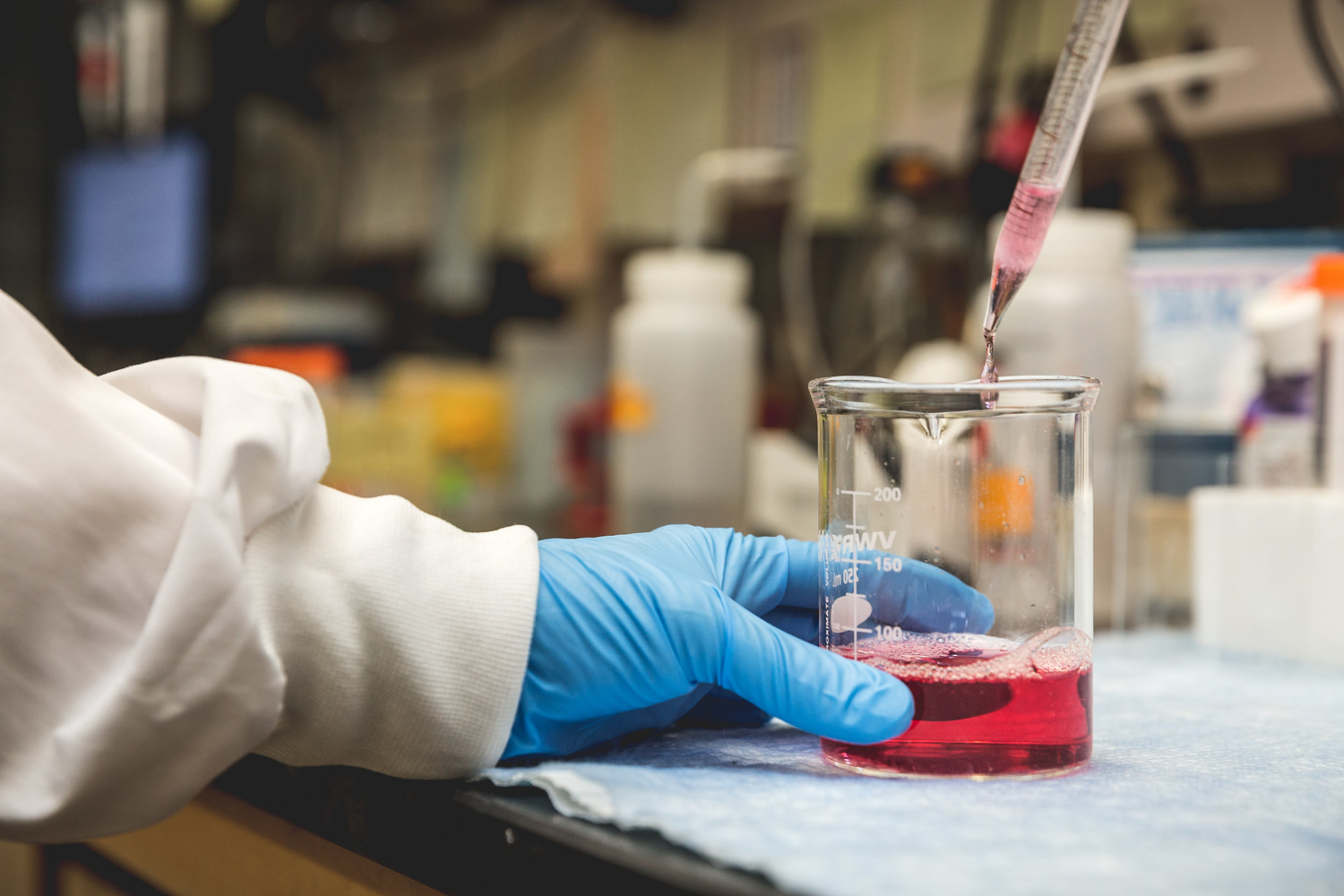
What the Science Says
While we – due to EU regulations – cannot legally classify these as health claims, here are some peer-reviewed studies looking into the key ingredients in SUN:

1. Astaxanthin
Astaxanthin – same pigment that gives salmon and flamingos their color – is a naturally occurring red pigment that deposits in the skin, enhancing and evening out skin tone. Research shows that regular astaxanthin intake can lead to visible changes in skin coloration, supporting a naturally enhanced glow.
Additional Astaxanthin Research:
"Astaxanthin protects against UVA-induced photoaging"
Tominaga et al., 2012, Carotenoid Science
https://pubmed.ncbi.nlm.nih.gov/22214255/
"Astaxanthin supplementation improves skin moisture and elasticity"
Yamashita, 2006, Carotenoid Science
(Shows 40% elasticity improvement cited in founder story)
Studies:
"Effects of Astaxanthin Supplementation on Skin Health: A Systematic Review of Clinical Studies”
https://www.tandfonline.com/doi/full/10.1080/19390211.2020.1739187?src=recsys
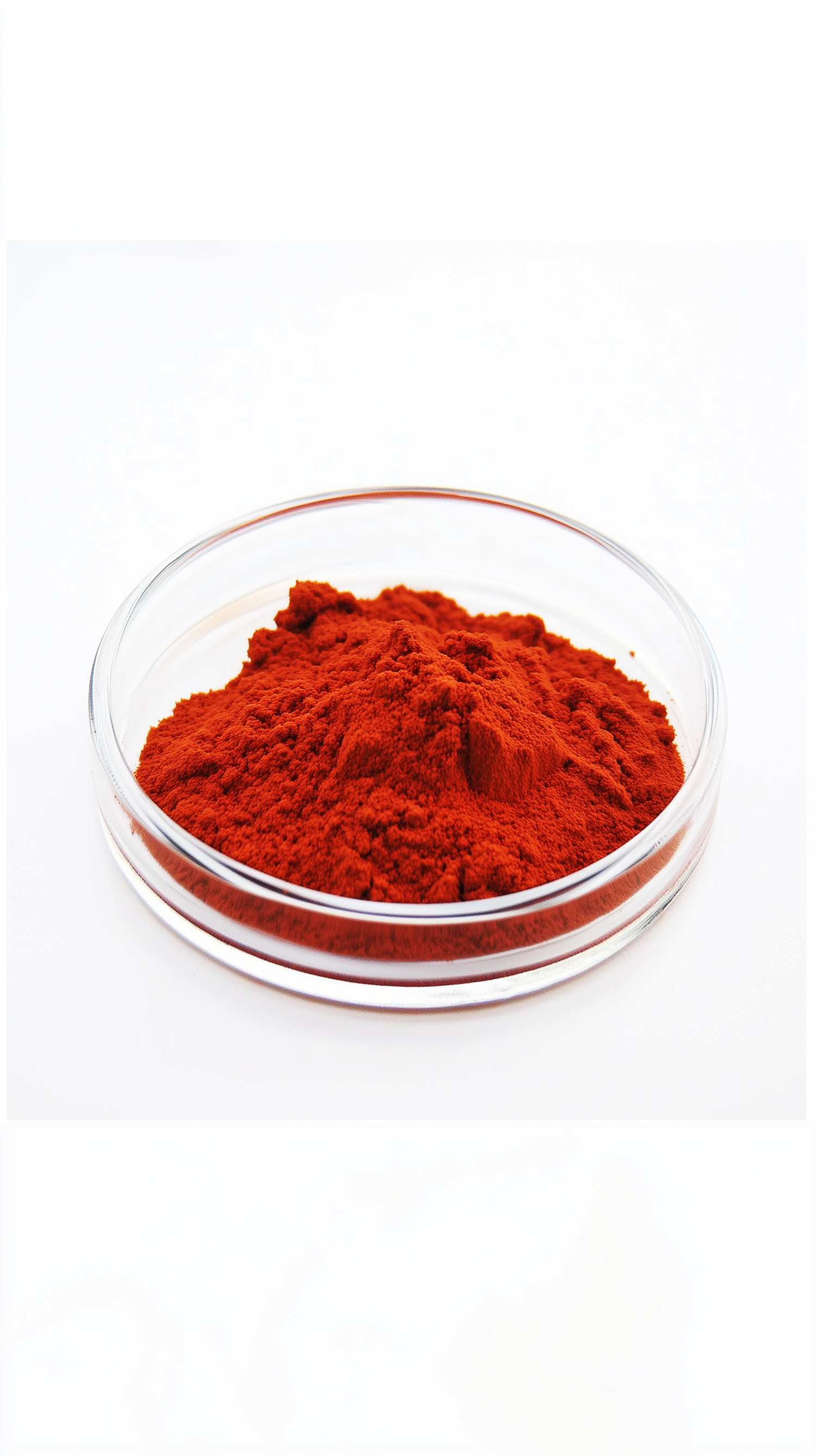
2. Lycopene
Lycopene – a carotenoid found in tomatoes – accumulates in the skin over time and contributes to a more evenly warm, “bronzed”, complexion. Studies suggest that lycopene works synergistically with UV exposure, leading to a warmer, deeper skin tone over time.
Studies:
“Evidence for antioxidant nutrients-induced pigmentation in skin: results of a clinical trial
”https://pubmed.ncbi.nlm.nih.gov/9285071/
“The combined effects of extracts containing carotenoids and vitamins E and C on growth and pigmentation of cultured human melanocytes”
https://pubmed.ncbi.nlm.nih.gov/15452410/
“Beauty from within: Improvement of skin health and appearance with Lycomato a tomato-derived oral supplement”
https://onlinelibrary.wiley.com/doi/10.1111/jocd.15650
“The effect of tomato and lycopene on clinical characteristics and molecular markers of UV-induced skin deterioration: A systematic review and meta-analysis of intervention trials”
https://pubmed.ncbi.nlm.nih.gov/36606553/

3. L-Tyrosine & Copper Gluconate
L-Tyrosine is an amino acid precursor to melanin synthesis. Your body
uses tyrosine as the starting material to create natural skin pigmentation.
Copper gluconate acts as a cofactor for tyrosinase, the enzyme that
converts tyrosine into melanin.
Together, these support your body's natural pigmentation pathways.

4. Fenugreek
Fenugreek (Trigonella foenum-graecum) is a medicinal plant traditionally used in Ayurvedic and Middle Eastern medicine, now gaining attention for its benefits in skin health. Rich in antioxidants like flavonoids and polyphenols, fenugreek helps combat oxidative stress — one of the leading causes of skin aging and inflammation. It also contains compounds such as diosgenin and trigonelline, which may support hormonal balance and improve skin tone and hydration. Studies suggest fenugreek's anti-inflammatory and antimicrobial properties can help soothe irritated skin and support a clearer, more even complexion. In the context of beauty supplements, fenugreek contributes to a natural glow by enhancing circulation, supporting collagen maintenance, and promoting a healthy, nourished skin barrier from within.
https://pmc.ncbi.nlm.nih.gov/articles/PMC11016425/

5. Enhanced Absorption Technology
Black Pepper Extract (Piperine) increases the bioavailability of
carotenoids by up to 2,000%, ensuring your body actually absorbs
and utilizes these nutrients.
Study: "Influence of piperine on the pharmacokinetics of curcumin
in animals and human volunteers"
Shoba et al., 1998, Planta Medica
https://pubmed.ncbi.nlm.nih.gov/9619120/

What to Expect: Science-Based Timeline
Based on clinical studies and customer data:
WEEKS 1-2: Saturation Phase
Carotenoids accumulate in skin tissue. No visible changes yet.
This is normal and expected.
WEEKS 3-4: Early Changes
Subtle warmth may appear in complexion. Fair-skinned individuals
often notice first. Continue consistent supplementation.
WEEKS 6-8: Visible Results
Noticeable golden tone developing. Even across skin. Studies show
this is when most people see clear changes.
WEEKS 12+: Optimal Saturation
Full effects visible. Maintained with continued daily use.
Gradual development ensures natural appearance.
Note: Results vary based on baseline skin tone, consistency of
use, and individual metabolism.

Regulatory Compliance
We comply with EU health and nutrition regulations and make sure that all of our marketing remains inside the guidelines set by governing bodies. For more information on authorized health claims, visit the EU Register of Nutrition and Health Claims.
If you have any questions, please reach out to us — we are always happy to share more details about the research behind our product!
Scientific sources:
Whitehead et al., 2012 - "You are what you eat: within-subject increases in fruit and vegetable consumption confer beneficial skin-color changes" Published in: PLoS ONE Link: https://journals.plos.org/plosone/article?id=10.1371/journal.pone.0032988
Effect of the sun on visible clinical signs of aging in Caucasian skin: https://pmc.ncbi.nlm.nih.gov/articles/PMC3790843/
Sun Exposure Behaviors and Knowledge Among the At‐Risk Population: Results From an International Survey, the HELIOS Project: https://pmc.ncbi.nlm.nih.gov/articles/PMC11599907/
Effect of the sun on visible clinical signs of aging in Caucasian skin: https://pmc.ncbi.nlm.nih.gov/articles/PMC3790843/
Natural and Sun-Induced Aging of Human Skin: https://pmc.ncbi.nlm.nih.gov/articles/PMC4292080/
Ian Stephen: https://www.sciencedirect.com/science/article/abs/pii/S1090513810001169
University of St Andrews “You look good enough to eat”: https://news.st-andrews.ac.uk/archive/you-look-good-enough-to-eat/
Fruit over Sunbed: https://pubmed.ncbi.nlm.nih.gov/25014019/
Study finds that people are attracted to outward signs of health, not actual health: https://www.eurekalert.org/news-releases/791999
Carotenoids and human mate choice: https://api.research-repository.uwa.edu.au/ws/portalfiles/portal/17126288/The_carotenoid_.pdf
Carotenoid Skin Coloration Enhances Face and Body Attractiveness: A Cross-Cultural Study: https://www.researchgate.net/publication/332757131_Author_accepted_manuscript_Carotenoid_Skin_Coloration_Enhances_Face_and_Body_Attractiveness_A_Cross-Cultural_Study
University of Nottingham: Looking Good on Greens: https://www.nottingham.ac.uk/news/pressreleases/2011/january/lookinggoodongreens.aspx
